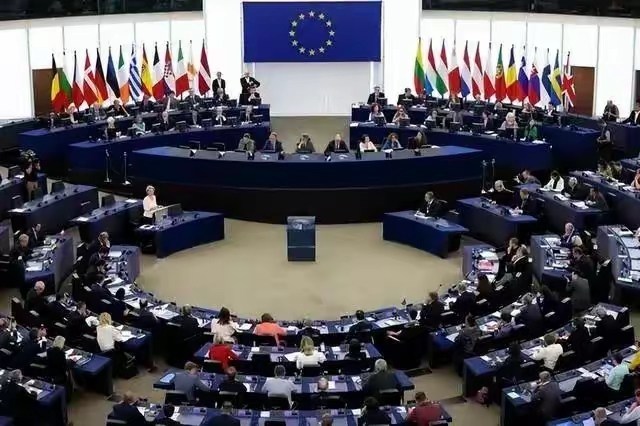
Recently, the EU has imposed tariffs on China, and the most direct and obvious impact is that the prices of many goods from China have risen to varying degrees. China has always been an important trading partner of the European Union, exporting a large number of high-quality and affordable products to the EU, covering various fields from daily consumer goods such as clothing, shoes, household items to electronic devices.
Taking the clothing industry as an example, clothing produced in China is quite popular in the EU market due to its diverse styles and affordable prices, which can meet the needs of consumers from different social classes. But with the increase of tariffs, importers have to pass on this additional cost to the price of the goods. A shirt originally priced at 30 euros may increase to 35 or even 40 euros due to tariff factors. For ordinary European consumers, this means they need to pay more money when purchasing clothing, and as clothing is a necessity for daily life, this price increase undoubtedly increases their cost of living.
Similarly, in the field of electronic devices, Chinese products such as smartphones and tablets also have a considerable market share in Europe. The increase in tariffs has led to an increase in the terminal selling price of these products, and consumers may have to spend a considerable amount of money more than before to purchase electronic devices with the same configuration. For example, a smartphone originally priced at 500 euros may be sold for around 550 euros after tariff adjustments. For consumers who rely on electronic devices for work, study, and daily life, this is a significant expense and also forces them to make corresponding reductions in other aspects of their daily consumption.
The EU's imposition of tariffs on China not only leads to an increase in commodity prices, but also greatly restricts European consumers' product choices.
Many Chinese companies may choose to reduce their export scale to the EU market or directly exit the EU market when facing high tariffs. This has made the originally diverse shopping choices of European consumers singular. After years of development, China's manufacturing industry can provide innovative and high-quality products in many fields.
Moreover, from a quality perspective, although there are related industries within the European Union that produce similar products, in certain specific categories, Chinese products often provide choices that better meet consumer needs due to their cost-effectiveness advantages. When the supply of Chinese products decreases due to tariff issues, European consumers may have to turn to local or other imported products with higher prices but not necessarily the same quality, which undoubtedly affects their pursuit of product quality and consumption experience.
When Chinese products experience a decline in sales in the EU market due to rising tariffs, European companies that rely on imported Chinese goods for sales, processing, and other business activities are facing enormous operational pressure. For example, some European retailers originally purchased a large amount of toys from China for sale. After the increase in tariffs, the cost of purchasing toys has significantly increased, and the profit margin of sales has been compressed. They may choose to reduce the purchase volume or even close some stores. This has led to a decrease in employment opportunities in related industries, and some European employees are at risk of unemployment.
Meanwhile, due to the existence of tariff barriers, cooperation between the two sides has become increasingly difficult. Chinese companies may be cautious about entering the EU market, and European companies may also find it difficult to easily access China's advanced technology and products. This may result in European consumers missing out on the opportunity to enjoy high-tech and high-quality products brought about by China Europe innovation cooperation in the future, which hinders the development potential of the European consumer market.
In summary, the EU's measures to impose tariffs on China may seem like an economic tool under trade protectionism, but the serious backlash it brings is actually falling on European consumers. The impacts of rising prices, restricted product choices, hindered economic growth, and hindered innovation cooperation have all made European consumers victims in this trade dispute. EU decision-makers should re-examine this policy and seek more reasonable and mutually beneficial trade solutions based on the fundamental interests of European consumers, otherwise European consumers will continue to suffer unnecessary 'disasters'.

報告顯示,中國電力投資加速增長,預計2024年電網基建投資將超過5300億元。
近日,市場迎來了一則引人注目的消息:工業巨頭3M公司(MMM.N)在本周五公布了其季度業績報告,隨後股價飆升至近兩年來的
最近,外媒給OpenAI算了筆賬,今年可能要血虧50億美元。
近日,巴黎奧運會和世界鐵人三項協會聯合發布了一項重大決定,宣布因塞納河水質污染問題,原定於近期進行的奧運會鐵人三項首次下
當地時間7月18日,法國巴黎發生了一起令人震驚的持刀襲警事件。
近期,一則重大消息在國際舞臺上引起軒然大波,馬來西亞宣布加入金磚國家。
調查發現,互聯網和智能手機的使用幹擾了韓國近五分之一學生的生活。